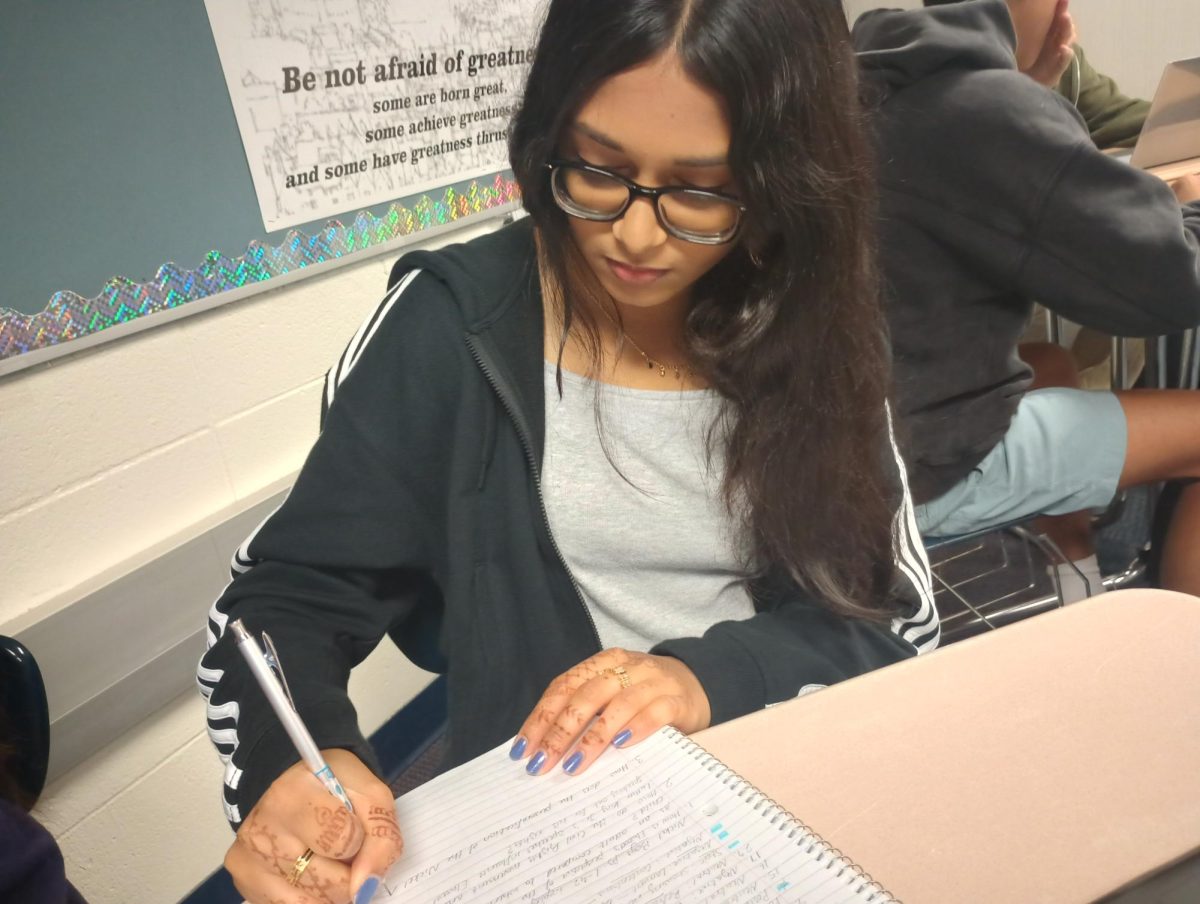As digital technology rapidly expands, teachers all over CHS are experimenting with computerized learning. In the science department, more behind-the-scenes materials are being converted from paper to computer.
“A lot of my job sometimes is just helping connect teachers with resources; if they say, ‘Hey, I want to take a field trip, how do I find that information?’ (I’m) almost making a department FAQ,” science department chairperson Drew Grimes said.
In addition to digitizing resources, Grimes said he also uses technology to help connect teachers.
“(There’s) maybe not a strong sense of community… you don’t always know your colleagues, same thing with (students),” Grimes said. “Little things I’m trying to do, is… put an email out on Friday, (for staff) to get to know people, even among the science department we have people that work over here that don’t know the freshman center teachers, we see them like a few times a year.”
Grimes also said that he has been using technology to consolidate processes including filling out online instead of physical forms and having spreadsheets of what and when teachers are teaching to make sure that teachers have more of the time that they need.
“Time is our shortest commodity we have here, for sure,” Grimes said. “(I’m doing) anything I can to help streamline it.”
On the student side, sophomore Divya Rajendran said she preferred learning on paper rather than on her Chromebook in her own science class.
“I feel like writing things down helps me learn more and feel more connected to whatever I’m writing down,” Rajendran said. “It’s easy to annotate my notes, circle it, write little notes on the side.”
She said that having lessons on Canvas was a good way for her to apply her knowledge, but that it wasn’t the best fit when it came to taking notes.
“I feel like doing things online is a very simple way of doing assignments, like if you have assignments when you’re not forced to solve math problems, things that are very straightforward,” Rajendran said. “But in classes like math and science where you have to… potentially solve equations and problems, I feel like… doing things in a non-technological way is better.”
Although not all science teachers are gravitating towards digital learning, Grimes said that he wants to keep pushing to centralize certain elements in the science department for teachers by making them as digital as possible.
“It’s a bunch of little things, but… it’s easy if it’s just one click (away),” Grimes said.




























![Keep the New Gloves: Fighter Safety Is Non-Negotiable [opinion]](https://hilite.org/wp-content/uploads/2024/12/ufcglovescolumncover-1200x471.png)
















































![Review: “We Live in Time” leaves you wanting more [MUSE]](https://hilite.org/wp-content/uploads/2024/12/IMG_6358.jpg)
![Review: The premise of "Culinary Class Wars" is refreshingly unique and deserving of more attention [MUSE]](https://hilite.org/wp-content/uploads/2024/12/MUSE-class-wars-cover-2.png)
![Introducing: "The Muses Who Stole Christmas," a collection of reviews for you to follow through winter [MUSE]](https://hilite.org/wp-content/uploads/2024/12/winter-muse-4.gif)
![Review: "Meet Me Next Christmas" is a cheesy and predictable watch, but it was worth every minute [MUSE]](https://hilite.org/wp-content/uploads/2024/11/AAAAQVfRG2gwEuLhXTGm3856HuX2MTNs31Ok7fGgIVCoZbyeugVs1F4DZs-DgP0XadTDrnXHlbQo4DerjRXand9H1JKPM06cENmLl2RsINud2DMqIHzpXFS2n4zOkL3dr5m5i0nIVb3Cu3ataT_W2zGeDAJNd_E-1200x884.jpg)
![Review: "Gilmore Girls", the perfect fall show [MUSE]](https://hilite.org/wp-content/uploads/2024/11/gilmore-girls.png)
![Review in Print: Maripaz Villar brings a delightfully unique style to the world of WEBTOON [MUSE]](https://hilite.org/wp-content/uploads/2023/12/maripazcover-1200x960.jpg)
![Review: “The Sword of Kaigen” is a masterpiece [MUSE]](https://hilite.org/wp-content/uploads/2023/11/Screenshot-2023-11-26-201051.png)
![Review: Gateron Oil Kings, great linear switches, okay price [MUSE]](https://hilite.org/wp-content/uploads/2023/11/Screenshot-2023-11-26-200553.png)
![Review: “A Haunting in Venice” is a significant improvement from other Agatha Christie adaptations [MUSE]](https://hilite.org/wp-content/uploads/2023/11/e7ee2938a6d422669771bce6d8088521.jpg)
![Review: A Thanksgiving story from elementary school, still just as interesting [MUSE]](https://hilite.org/wp-content/uploads/2023/11/Screenshot-2023-11-26-195514-987x1200.png)
![Review: "When I Fly Towards You", cute, uplifting youth drama [MUSE]](https://hilite.org/wp-content/uploads/2023/09/When-I-Fly-Towards-You-Chinese-drama.png)
![Postcards from Muse: Hawaii Travel Diary [MUSE]](https://hilite.org/wp-content/uploads/2023/09/My-project-1-1200x1200.jpg)
![Review: "Ladybug & Cat Noir: The Movie," departure from original show [MUSE]](https://hilite.org/wp-content/uploads/2023/09/Ladybug__Cat_Noir_-_The_Movie_poster.jpg)
![Review in Print: "Hidden Love" is the cute, uplifting drama everyone needs [MUSE]](https://hilite.org/wp-content/uploads/2023/09/hiddenlovecover-e1693597208225-1030x1200.png)
![Review in Print: "Heartstopper" is the heartwarming queer romance we all need [MUSE]](https://hilite.org/wp-content/uploads/2023/08/museheartstoppercover-1200x654.png)




